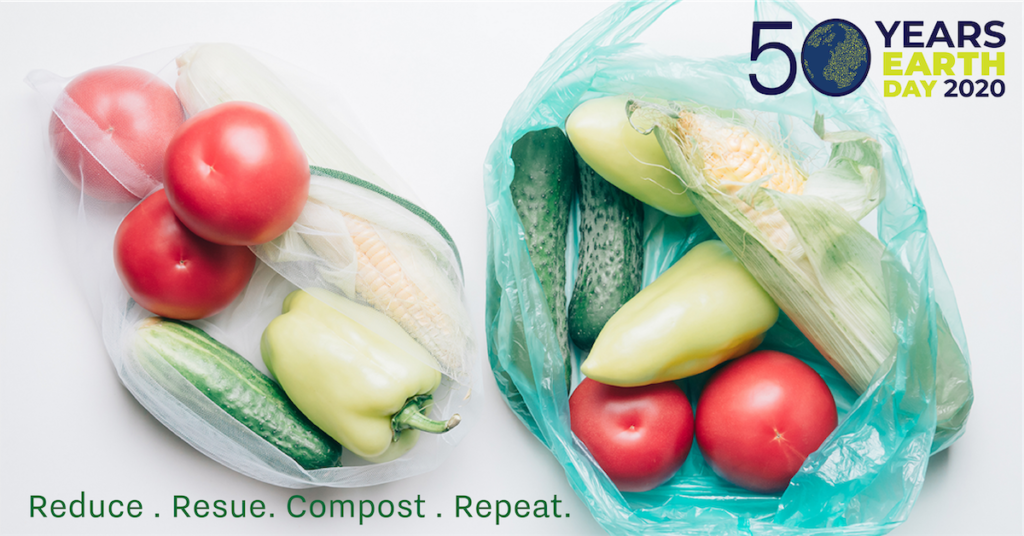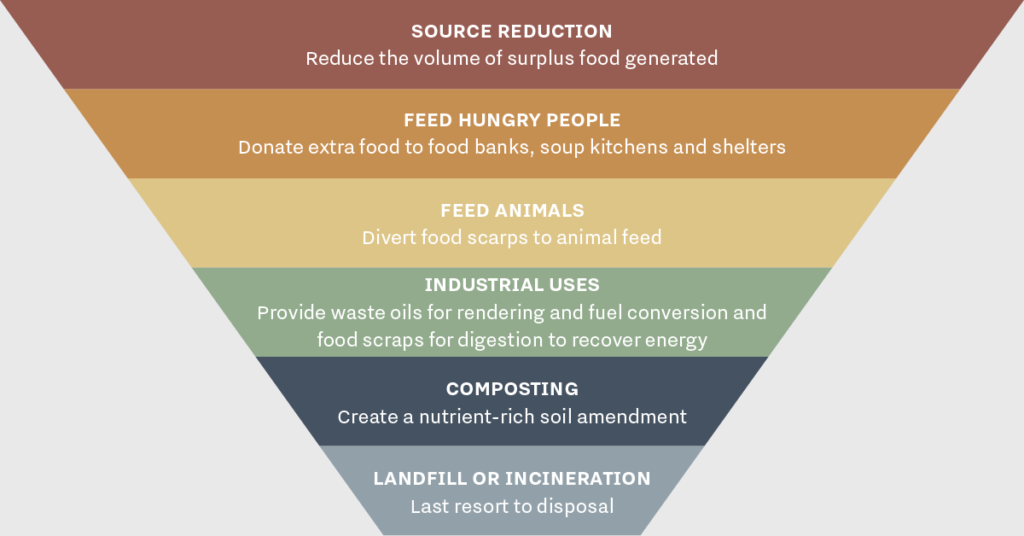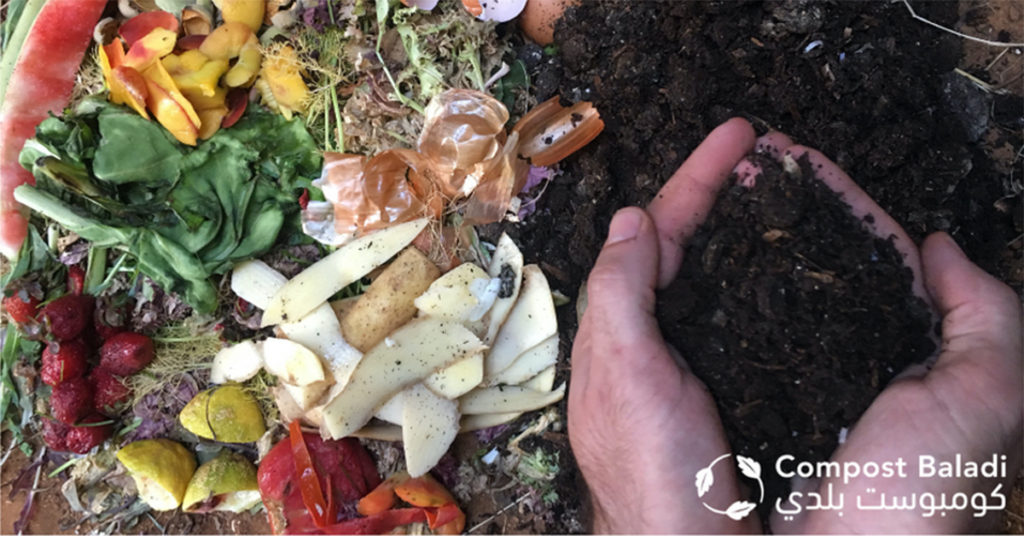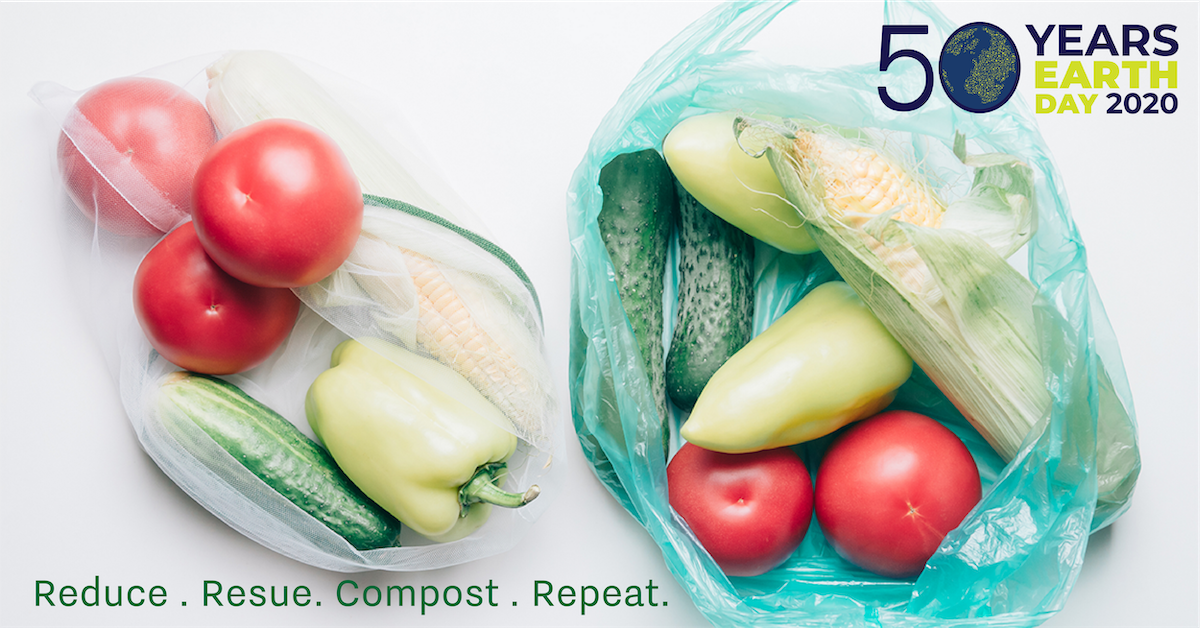
In celebration of Earth Day 2020, Marc Aoun from Compost Baladi writes a blog for Berytech on what can be done to reduce greenhouse gasses, waste management in Lebanon and composting at home.
Earth Day 2020: Climate Action
Today marks the fiftieth anniversary of Earth Day – the planet’s biggest civic event. On April 22, 1970, around 20 million Americans unified their fear of an environmental crisis and filled streets, college campuses and hundreds of cities to march against environmental ignorance and stress on a new way forward for our planet. From this arose the yearly Earth Day; a joint response to an environment in crisis.
This year’s Earth Day 2020 theme highlights one of the most imperative topics: climate action. In light of the COVID-19 pandemic and a recession hitting us worldwide, climate change remains a prevalent challenge to the future of humanity and the life-support systems that make our world livable. Among the different aspects that affect climate change is the solid waste sector, which contributes to greenhouse gas emissions.
Reduction of Greenhouse Gases
Landfills are designed to store as well as to treat wastes. The highest risk coming from municipal waste in landfill comes from the migration of contaminated leachate as well as landfill gases. Through the decomposition of the organic waste (cardboard, newspaper and food waste) by the aerobic bacteria, the oxygen is rapidly converted to carbon dioxide, whereby the anaerobic bacteria start to proliferate and produce methane.
Therefore, the two main landfill gases are carbon dioxide and methane among other trace ones; they are all highly potent and hazardous to both the human health and the environment. It is worth noting that a unit volume of methane gas is 25 times more potent than that of carbon dioxide. It has also been reported that ~40 to 60 MT of methane gas per year emerge from landfill gases; representing ~12% of the global methane emissions. As a result, it is crucial to take action and reduce the global warming potential from landfill sites.
Taking into consideration the on-going waste management crisis in Lebanon since 2015, taking action comes at the forefront of our duties. Compost Baladi SAL is a Lebanese social enterprise that was established in response to this crisis; providing biowaste services and products as well as empowering entities at different scales to take action and manage their organic waste in place. Among the different actions we could take to contribute to Earth Day 2020 and address climate change, is to contribute in the reduction of gas emergence from waste going to landfills. Considering that ~55% of Lebanon’s municipal waste generated is organic, each one of us can contribute to diverge that much biowaste from being openly dumped. A study conducted on 293 municipalities over Beirut and surroundings, demonstrated that coupling the optimization of composting and recycling with energy recovery from landfilling reduced equivalent emissions by 89 to 127% respectively.
Seeing these statistics, shows us realistically the compound effect of our daily habits and that things go much farther than simply avoiding the use of plastic straws to save the turtles. It’s a matter of the flora and fauna’s stability, a clean environment to live in, our personal and loved one’s health and not to mention the well-being of future generations. It’s a matter of saving our home, Earth. It also credibly shows us the positive effect each one of us can play upon altering some of our day-to-day habits. So how can we contribute on a personal and daily level to make a permanent change?
Waste Management

When we talk about waste management, we directly base ourselves on the hierarchy of the principles of waste recovery.
The most preferred solution starts by reducing the volume or surplus of products used and generated. Ways to tackle this, relies on reducing the use of packaging as much as possible – especially non-biodegradable packaging – such as plastic containers, plastic bags, plastic cutlery and others. A good alternative to these would be the use of bio-degradable or carton packaging, tote bags for grocery shopping, bamboo or stainless-steel cutlery when needed.
At the level of foods, around 30% of the purchased goods end up thrown away. For this reason, it is crucial to purchase the necessary amounts of food needed only and not more. Applying this in times of social distancing would be best to pay attention to the quantity purchased based on the foods’ shelf-life (i.e. water-based foods perish rapidly); hence, purchase the needed quantity based on your daily consumption for a period of a week. When it comes to excess of foods that remain, the ideal alternative remains to either donate extra food to underprivileged cohabitants, food banks, soup kitchens or shelters and/or livestock (i.e. cows, chicken, etc.); should you live in a rural area and grow your own.
In addition to reducing, reusing and repurposing foods, comes the ability to recover them. That is when foods that we have already used (i.e. cooking oil) can be given for industrial use; we provide waste oils for rendering and fuel conversion as well as food scraps for digestion to recover energy.
Following repurposing for industrial use, comes composting; creating a nutrient rich soil amendment.
At last, landfilling and incineration is necessary for the management of non-recyclable waste only. Therefore, it is the least preferred method in the hierarchy to resort to the disposal of recyclable waste, as it would take decades before a complete remediation of the land takes place in addition to the emergence of greenhouse gases that would occur.
How to Compost at Home

Whether you live in the city or in a rural area, you can compost at home! Composting is how we mimic nature to process our organic waste. It is the transformation of raw organic materials into a natural fertilizer that is suitable to grow plants with. Organic waste such as food waste, agriculture debris, paper and carton are compostable.
To form a compost pile, you need a container to throw your biowaste in or a small space at the corner of your garden. Following that, you can start throwing your biowaste in it on a daily basis. Every time you throw in food waste, add the same amount in carbon material (i.e. dead leaves, woodchips, finely cut and colorless papers, etc.). Make sure to cover the pile with carbon material every time you add to it, so you reduce the attraction of pests. Keep on checking its temperature every couple of days and mix it once it’s heated. Maintain this process for a couple of months until all the content turns into compost.
For more instructions, check out our website, Facebook and Instagram pages.
References
About the author

Marc Aoun is an environmental scientist who worked in the water development department at UN-ESCWA after graduation. He also gained invaluable knowledge in the field as he worked with national private consulting firms on quantifying pollution source for surface water in Lebanon and solid waste management projects in Lebanon. In 2017, he co-founded and earned the position of CEO and General Manager at Compost Baladi SAL. He is also the Founder and CEO of CubeX SAL. Throughout his professional career in sustainable agricultural practices, he gained invaluable field experience and worked and trained in controlled environment agriculture, recirculating watering systems and zero-waste projects. Also, through a study experience in Central America, he explored and accomplished a wide expertise in sustainable land, water, waste and energy management methods.








